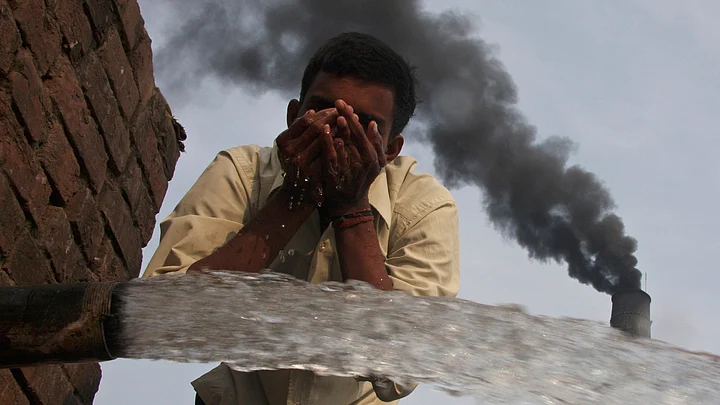To democratise data critical to savings thousands of lives, IndiaSpend has announced the launch its own network of low-cost sensors to measure the air quality in many Indian cities.
With this, IndiaSpend hopes to build a large system that can share air-quality data in an open, transparent way, for the benefit of all, including those who run other networks.
Why #Breathe is Important
As many as 13 of the world’s 20 most-polluted cities are in India, according to the World Health Organisation. New Delhi’s toxic air will likely cause over 30,000 deaths in 2025, making it the deadliest among the world’s most polluted cities, says a study by Germany’s Max Planck Institute for Chemistry. By 2050, deteriorating air quality in some of India’s biggest cities – Delhi, Mumbai & Kolkata – could kill over 130,000 people every year, says the study.
Most air-pollution deaths are caused by fine, invisible particles, called PM2.5, about 30 times finer than a human hair. These particles can be inhaled deep into the lungs, causing heart attacks and strokes, which account for three-quarters of 3.3 million deaths every year globally, according to a report in Nature, with lung cancer and respiratory diseases responsible for the rest.
So, India needs all the data it can get on air quality caused by PM2.5 particles, the accepted global standard of measuring air pollution.
Air Quality Goes From Bad to Worse
In Singapore two months ago, worsening haze conditions forced authorities to shut schools, said a report from the news agency Xinhua.
In India too, man-made farm fires in Punjab are affecting Delhi’s air quality. The bottom line is that the air pollution is largely man-made. There are two parts to the problem; first, the knowledge or the lack of it, and, second, the desire to do something about it.
A deeper understanding of data of the surrounding environment is becoming critical in defining our lives. Elsewhere, in the world, citizens are more keen than ever to know more about the quality of the air they breathe. This knowledge must translate into action.
What Can the #Breathe Do?
Air pollution is silent and kills slowly.
Are there safe times to leave home? Why is the Air Quality Index consistently bad in some parts of the city? What can citizens living in these areas do? Some parents choose schools for their children in Delhi depending on how well air-conditioned these classrooms are – and thus, insulated from pollution.
There are many other solutions we can explore.
While IndiaSpend’s eventual objective is that the data they generate should lead to policy action, there are many other ways these data can help us.
Read the full story here.
(At The Quint, we question everything. Play an active role in shaping our journalism by becoming a member today.)
